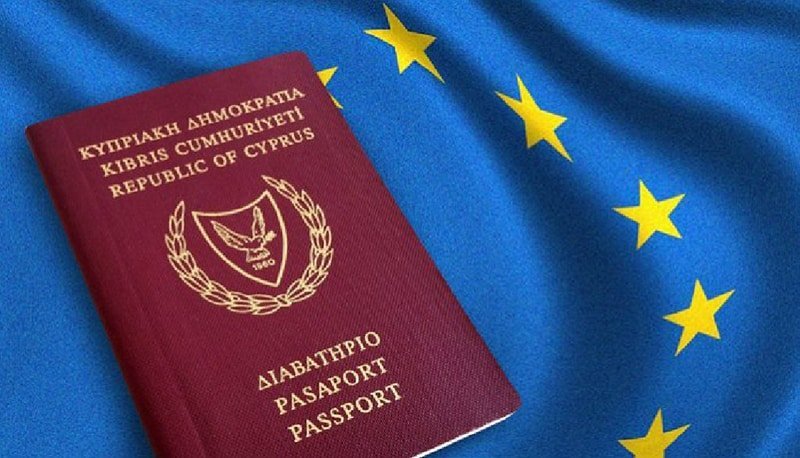A recently published interim report into the citizenship-by-investment programme by a government-appointed panel fully vindicates earlier findings by the Audit Office, it said on Tuesday after reviewing the report.
In a lengthy statement, the auditor-general’s office reiterated that the government – as well as the attorney-general – had repeatedly sought to discourage them from looking into the passports affair.
The statement comes a week after the government released the interim findings of a committee of inquiry which, though heavily redacted, lists a litany of irregularities and outright unlawful practices in the granting of citizenships from 2007 to 2020.
The Audit Office provided a chronicle of its own investigations and findings, which started in earnest in late August 2020 after the al Jazeera network released its first report on the tainted Cypriot investment programme.
The government announced the appointment of the special investigative panel days later, on September 3.
Earlier, on August 31, Audit Office officials visited the interior ministry and received files on five citizenship applicants. When they returned the next day for more, they were refused access to any more files, but were given aggregated data on naturalisations.
On September 9, Attorney-general Giorgos Savvides advised that no further files should be handed over to the Audit Office because the investigation into the passports was the exclusive ambit of the special panel. The files could be delivered to the Audit Office once the committee of inquiry completed its probe, Savvides said.
Pressing on regardless, the watchdog continued gathering and analysing data, producing three special reports on the matter so far. Most of the findings have already seen the light of the day.
The second special report, released on November 27, zoomed in on the naturalisation of 64 people linked to the casino resort project in Limassol.
The Audit Office found that for 27 of these cases the granting of citizenship constituted a “blatant breach” of immigration laws as well as the cabinet’s own decisions and criteria.
In certain cases, the information that naturalised individuals were tied to the casino was concealed. In others, false declarations were made that the applicants met the investment criteria at the time.
Moreover, the Audit Office said the government’s subsequent excuse – that some of the citizenships were given for reasons of public interest given the magnitude of the casino investment – does not hold water.
That’s because the license for the casino resort was granted far earlier, in June 2017. Therefore, the granting of Cypriot citizenship can in no way be deemed an incentive for the investment, as the government seems to claim.
The interior minister at the time – Constantinos Petrides, now finance minister – has acknowledged that certain applications were sped up.
And according to the Audit Office, ‘Company A’ gave a contract to a Cypriot company to provide the panel glazing for its building. A government minister, participating in cabinet sessions that green-lit citizenships, was the sole shareholder in the company that got the contract.
What’s more, of the 64 individuals, 37 do not appear to have been employees of Company A. Some of them stated a place of residence in Cyprus but upon inspection, the stated addresses were either vacant lots or parking spaces.
“This means that the individuals in question, or other service providers/lawyers acting on their behalf, may well have provided false statements as to their place of residence,” the Audit Office said.
On February 26 of this year, the Audit Office released its third special report, regarding the junior ministry of tourism. It focused on the naturalisation of eight people linked to the concessionaire of the Ayia Napa marina. The naturalisations did not meet the investment criteria, while the service provider acting on behalf of the applicants was the law firm associated with President Nicos Anastasiades. Additionally, one of the managers of the company given the marina concession was a close relative of Anastasiades.
In its statement, the Audit Office went on to applaud the interim report of the committee of inquiry.
It pointed out that most of the members of the panel were initially of the opinion that the decisions taken by the cabinet were discretionary and therefore not administrative acts. This perspective could have had a major impact on the panel’s subsequent determinations, in terms of civil or other liability.
Eventually the majority of the panel came around to the idea that the cabinet decisions on naturalisations did in fact constitute administrative acts.
Chiming in, ruling party Disy on Tuesday issued a rather rote announcement, saying only that the passport investigation demonstrates the present administration has nothing to hide. It called on the attorney-general and law enforcement to assess the findings so far and potentially initiate disciplinary or other proceedings.
Through its leader Nicolas Papadopoulos, junior opposition Diko said the interim report exposes the multitude of scandals and illegalities, “which weigh heavy on the Anastasiades government.”
Papadopoulos claimed the government is still seeking to obstruct the Audit Office in its investigations.







Click here to change your cookie preferences